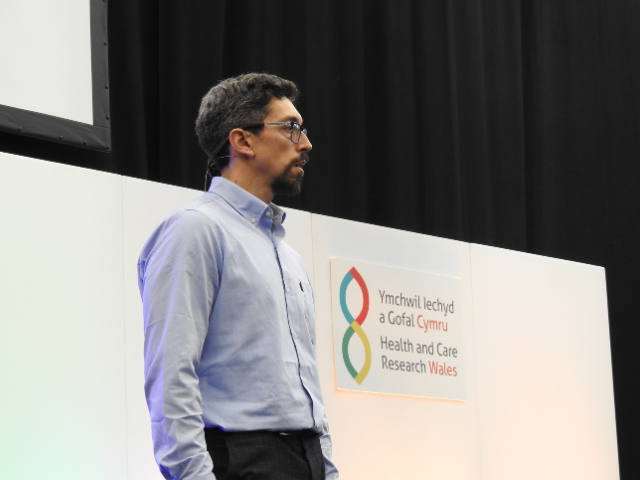
Our responsibility: harnessing Artificial Intelligence for suicide prevention – Dr Marcos Del Pozo Baños
15 October
Trigger warning: contains discussion of suicide, suicidal thoughts and attempts at suicide.
350 people die by suicide yearly in Wales.
16,000 people attempt suicide.
126,000 people struggle with suicidal thoughts.
And numbers are rising.
Where and why are we falling short?
Dr Marcos Del Pozo Baños, a Senior Lecturer at Swansea University Medical School where he also sits on the Steering Board for the Mental Health and Suicide Prevention Research Institute and co-lead of the FAIR curated mental health data core activity at DATAMIND (the UK’s Health Data Research Hub for Mental Health), has been utilising data to address the escalating crisis in mental health, particularly in suicide prevention. According to him, one key issue in suicide prevention is the difficulty in identifying those most at risk.
Marcos was drawn to science from a young age— taking apart radios and computers, just to see how they work and put them back together. His love for problem-solving drove him toward Artificial Intelligence (AI). As he began applying AI to mental health research, the real-world impact became clear. By combining AI with person-level data, such as the data from the SAIL Databank in Wales, patterns and risk factors for suicide that were previously hidden from view could be detected.
Despite progress, they have only scratched the surface. Effective prevention demands a holistic approach across all aspects of life, integrating healthcare and social services.
Marcos said:
“As a Data Scientist, I am convinced our research methods must reflect this. To truly transform suicide prevention, we need to harness the power of AI – analyse vast datasets to uncover hidden complex patterns.
We need to do more. If these data and AI can help, we must bridge the gap with suicide prevention.”
"Through careful and responsible use of AI and data, we could identify those at risk, and intervene earlier in an effort to reduce the devastating numbers of suicides in Wales.”
For Marcos, this is why the research matters: it’s not just about numbers on a screen; it’s about preventing these tragic losses, one life at a time.
Welsh Government is working on a new Mental Health and Wellbeing Strategy for the next 10 years. The plan is to support people in Wales to live in communities which promote, support and empower them to improve their mental health and wellbeing without stigma and discrimination. It also wants to provide a connected system of support across health, social care, third sector and research, where people can access the right service, at the right time, and in the right place.
Watch Dr Marcos Del Pozo Baños deliver a TED-style talk at the Health and Care Research Wales conference 2024 on how to bridge the gap between data and real-world interventions.
If you need to talk right now, there are many helplines staffed by trained people ready to listen. They won't judge you and could help you make sense of what you're feeling.
NHS 111 - urgent mental health helpline
- To get urgent mental health support, call 111 and select option 2.
- Call 116 123 (free from any phone)
- Call the Samaritans Welsh Language Line on 0808 164 0123 (7pm–11pm every day)
- Email jo@samaritans.org
- Visit some branches in person